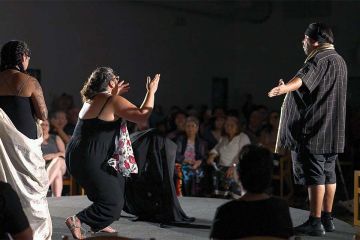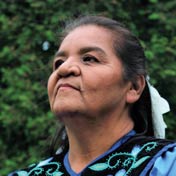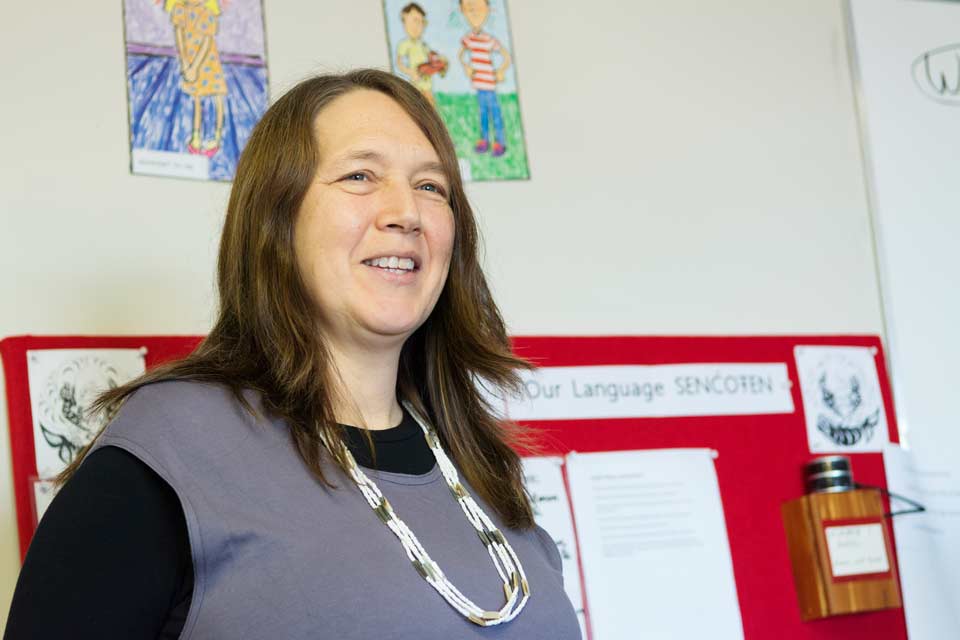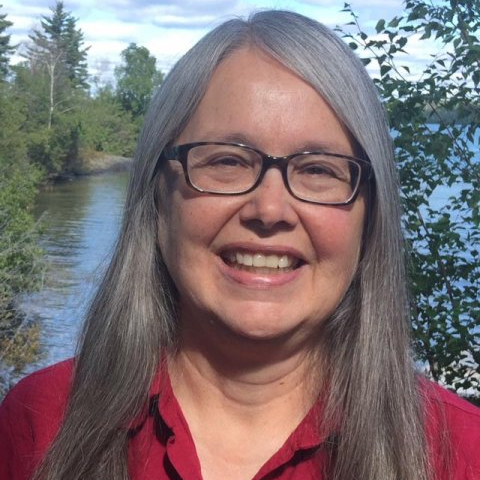Banting fellows shed light on Indigenous language, orca survival
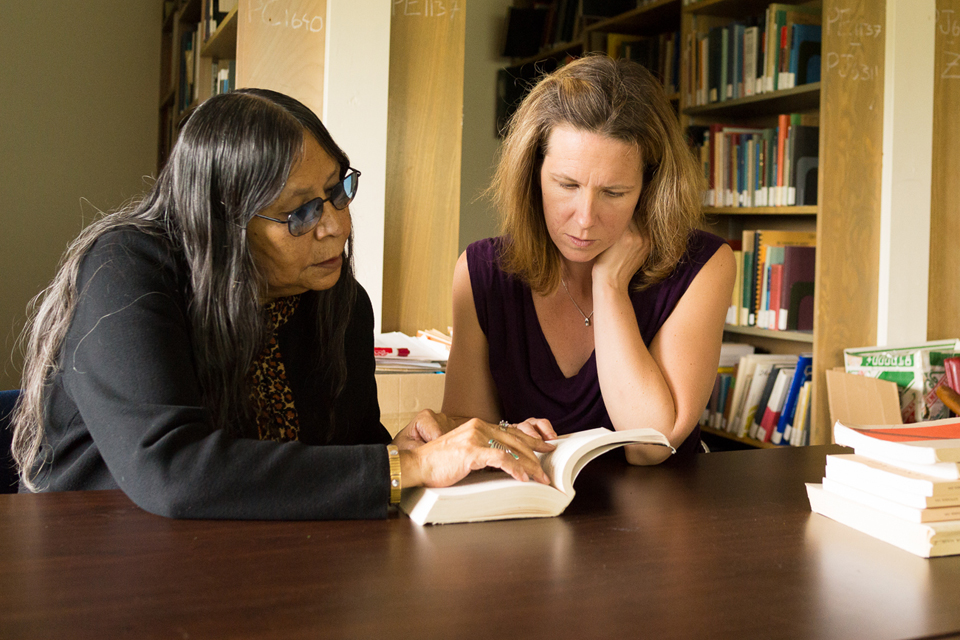
An endangered Indigenous language and an endangered West Coast wildlife icon stand to benefit from the work of two new Banting Postdoctoral Fellows at the University of Victoria.
Valued at $70,000 per year for two years, the fellowships are intended to groom Canada's next generation of research leaders. The program is administered by Canada's three federal granting councils.
An endangered Indigenous language
Linguist Heather Bliss is using her fellowship to continue work with members of the Siksiká and Kaináá nations documenting and preserving Blackfoot, a Plains Algonquian language spoken in southern Alberta and northwestern Montana and one of 87 endangered Indigenous languages in Canada.
Bliss has spent more than 15 years studying sentence structure and contemporary expressions of the language. Now she'll build a digital archive of Blackfoot texts, with people's personal stories and conversations including audio clips, transcriptions and analysis.
According to Bliss, there are approximately 3,500 speakers of Blackfoot but the majority are now in their senior years. No children, to her knowledge, currently speak the language fluently.
One of Bliss's more surprising moments was literally "seeing" two soundless vowels. Using a portable ultrasound device (similar to equipment used during pregnancy or injury), she was recording the minutiae of tongue movements when she witnessed the speaking subject's tongue articulating one of two vowels (like an 'a' and 'i'), with no audible sound.
"I've been trying to learn the language for so long and I didn't know for certain those soundless vowels were there. The ultrasound settled it."
Bliss says the Banting fellowship is fulfilling a goal she's had for a very long time—to give back to the community. "And it's the right time now, too," she says. "I needed to uncover certain aspects of the language for it to fully click for me. There were puzzles that I wanted to answer."
An endangered West Coast wildlife icon
For his fellowship research, biomathematician Andrew Bateman will investigate the social and ecological influences on birth and death rates (demography) among BC's resident (fish-eating) killer whales.
BC's northern resident population of killer whales—numbering about 250 animals—is listed as "threatened," while the southern resident population—totalling only 80 animals—is listed as "endangered" by both Canada and the US. The two populations do not interbreed.
"We know that the fate of these whales is tied to the health of chinook salmon populations, and we know that the social groups in which the whales spend their time affect how well they fare," says Bateman. "We know less about how these social patterns affect population growth and decline."
To find out, Bateman will develop mathematical models using data collected by whale researchers in BC and Washington State waters for more than 40 years.
"Whale researchers can tell a lot by being on the water—who is alive, who just gave birth, who is hanging out with whom. But someone needs to interpret all that information. That's where I come in—I'll try to make sense of year-to-year patterns as part of the bigger picture."
Chinook salmon records are an essential part of that big picture. "Without considering chinook I'd have a tough time teasing apart the effects of sociality," he says. "The whales share individual salmon with each other—a pretty amazing behaviour that's an important feature of their complex social lives."
Understanding the forces that affect a population is critical for protecting it, says Bateman.
"We're seeing alarming trends in the southern resident population, and to help them we need to be as informed as possible. They're important ecologically, socially and economically. Protecting them helps ensure a healthy coastal ecosystem overall."
Photos
In this story
Keywords: Indigenous languages, languages and linguistics, oceans, wildlife, Indigenous, whales, orca, mathematics, research, sustainability
People: Heather Bliss, Andrew Bateman









